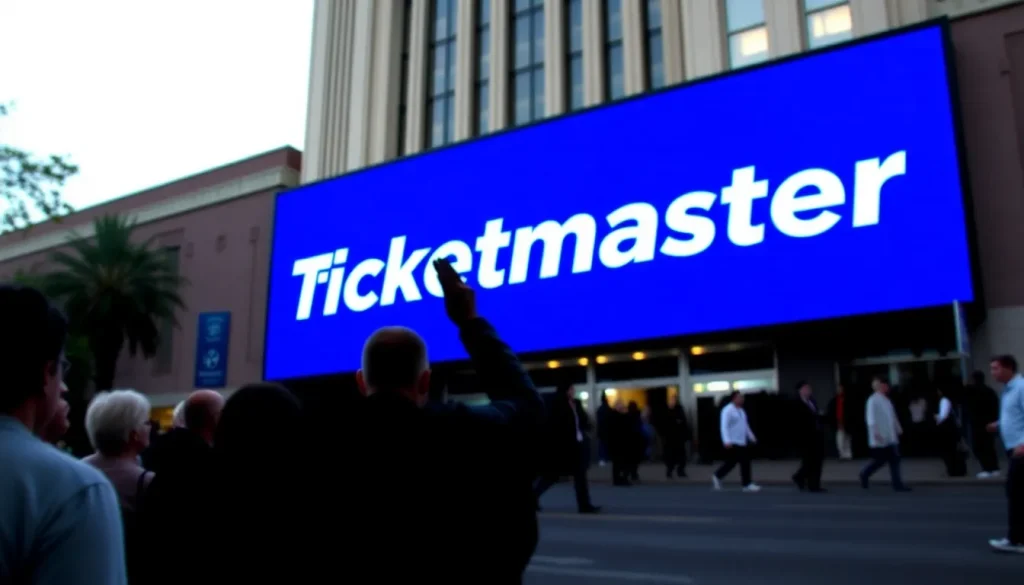FTC lawsuit claims Ticketmaster cheated fans out of billions

In recent years, significant scrutiny has fallen upon Ticketmaster and its parent company Live Nation, with allegations surfacing that they have engaged in practices detrimental to fans. A recent lawsuit filed by the Federal Trade Commission (FTC) has brought to light the questionable tactics employed by these companies, raising questions about their true intentions and the impact on ticket buyers.
This situation is critical, as it affects millions of concert-goers and event attendees. The allegations suggest that Ticketmaster has not only profited from ticket sales but also from deceptive practices that have intentionally harmed fans while benefiting brokers and scalpers. As the legal battle unfolds, understanding the complexities of these accusations is essential for consumers and industry stakeholders alike.
Understanding the Ticketmaster lawsuit
The FTC lawsuit against Ticketmaster and Live Nation is rooted in claims that the companies have deliberately manipulated the ticket resale market to maximize their profits. According to the allegations, the company was aware of abusive practices among ticket brokers and chose to ignore them in favor of financial gain.
Employees within Ticketmaster reportedly raised concerns about these practices, highlighting a notable instance from 2018 when an engineer advocated for fan protection. The engineer's email to an executive revealed troubling insights into the operations of the resale market, emphasizing the blurred lines between legitimate brokers and scalpers:
- This engineer explained how certain brokers could exploit ticket limits to amass thousands of tickets, thereby raising prices on the secondary market.
- The differentiation between a “legitimate” broker and a “scalper” is often subjective, leading to confusion for fans trying to navigate the ticket-buying landscape.
- Despite raising flags about these practices, management allegedly chose not to act, prioritizing revenue over customer satisfaction.
What are the alleged practices of Ticketmaster?
The FTC's investigation has uncovered several practices that raise ethical concerns regarding Ticketmaster's operations:
- Ignoring abuse reports: Employees frequently reported abusive behavior from brokers, but the company allegedly chose not to enforce rules that would curb these practices due to potential revenue losses.
- Manipulative pricing: Ticketmaster has been accused of unilaterally increasing ticket prices on the secondary market, profiting from both the initial sale and the resale.
- Encouraging scalping: By allowing brokers to purchase tickets in bulk and then inflate prices, Ticketmaster created a system where scalpers thrived at the expense of ordinary fans.
One particularly eye-opening example cited in the lawsuit involved a broker purchasing 772 tickets to a Coldplay concert for $81,000 and then reselling them for $170,000, resulting in nearly double profits. Such practices raise significant ethical questions about the responsibilities of ticketing companies in protecting consumers.
Ticketmaster's financial incentives
Ticketmaster's financial model has come into focus as the FTC outlined how the company profits from these alleged practices. According to the lawsuit:
- From 2019 to 2024, Ticketmaster reportedly collected over $187 million in markups on resale tickets.
- The decision to ignore brokers’ abusive practices was motivated by the potential loss of $220 million in annual resale ticket revenue.
- By “supporting” brokers, Ticketmaster could maintain high revenue streams, even if it meant compromising the fan experience.
This financial backdrop has raised significant concerns among consumers and industry analysts, who argue that the current ticketing system is rigged against the average fan.
Impact on artists and fans
While Ticketmaster and brokers have profited immensely from these practices, artists have not seen the benefits of this inflated market. The vast sums generated through scalping are not funneled back to the creators, which raises important questions about the sustainability of this model for live performances.
Consequently, many artists have expressed frustration over the lack of transparency in ticket pricing and resale practices. They argue that the current system not only undermines their revenue but also alienates their fans. The repercussions extend beyond just financial concerns; they affect fan engagement and the overall concert-going experience.
States involved in the lawsuit
The FTC lawsuit is not solely a federal matter; it has garnered support from multiple states, highlighting the widespread concern over Ticketmaster's alleged practices. Several states have joined in the legal action, each bringing their own perspectives and regulations to the table.
- States that have joined the lawsuit emphasize the need for fair business practices and consumer protection in the ticketing industry.
- The diverse coalition of states aims to hold Ticketmaster accountable and push for systemic changes within the ticketing market.
- This collaboration underscores the severity of the allegations and the desire for a more equitable system for fans and artists alike.
What happens next?
The lawsuit is set to unfold over the coming months, with both sides preparing for a potentially lengthy legal battle. As the case progresses, several outcomes are possible:
- Ticketmaster could face significant penalties if found guilty of the alleged practices.
- Changes in regulations regarding ticket sales and resales could be implemented, aimed at protecting consumers.
- The outcome may influence how ticketing companies operate in the future, potentially leading to a more transparent and fair process.
As discussions unfold, it's crucial for fans to stay informed and engaged with the developments in this case, as it could reshape the landscape of live events and ticketing as we know it.
To gain further insights into this unfolding situation, you can check out this informative video:




Leave a Reply